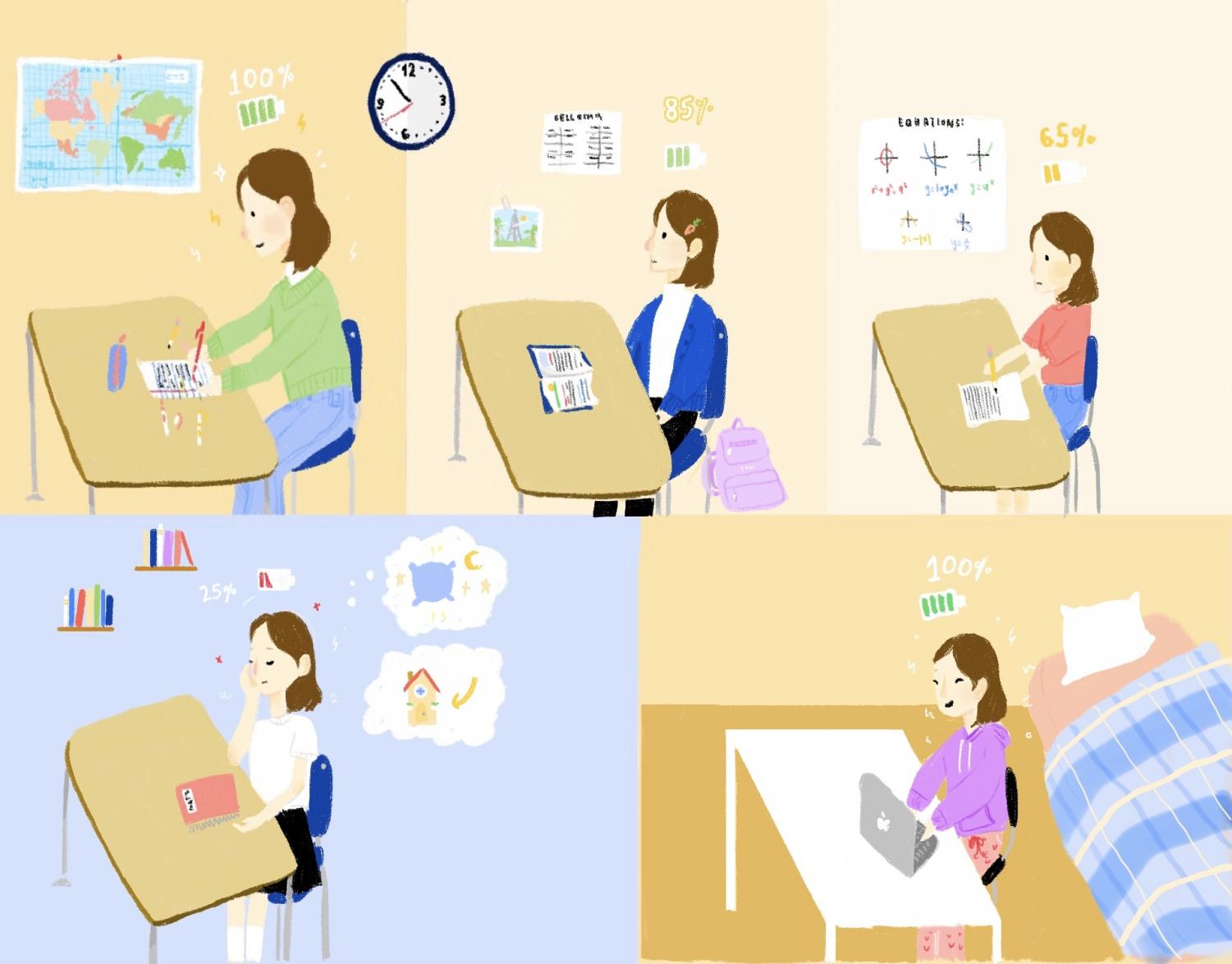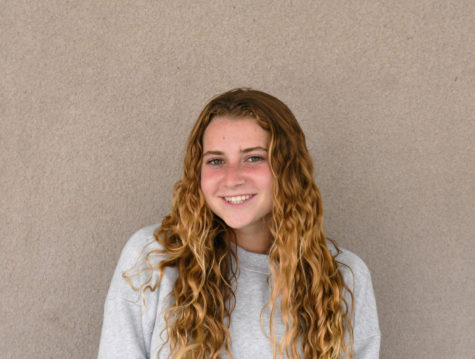Opinion: Periodic virtual classes would reduce stress, prevent burn-out
June 14, 2021

While few of us would claim to be virtual school enthusiasts after this nightmarish year of sitting at our computers for hours on end, it is important to acknowledge that the remote model has some undeniably positive attributes.
The inclination to write off everything that has happened in the past year as awful, lock it in a box, and throw the key into a pool of acid is understandable. But frankly, that would be wasting the unique opportunity that we have to reference a completely different learning model, and use some of its facets to optimize the education and wellness of students as we come out on the other side of the pandemic.
I propose that we include a weekly virtual day each week to lessen stress and optimize academic performance in students.
Mental health has been one of the most prevalent concerns in the educational discussions of recent years, and this year the mental health crisis has only intensified. One of the main causes of mental health deterioration in students is school, and maintaining the same schedule five days a week—online or in-person—only escalates the problem. New strategies for coping with student stress and workload management are often rolled out with little success. These strategies are unsuccessful because, in reality, they offer minimal change to daily routines. Time management forums and anxiety reduction pamphlets barely make a dent for students who are already struggling with their mental health.
Not needing to wake up early, look presentable, commute to school, and socialize for one day in the midst of an otherwise hectic week could provide students with some much needed respite, alleviating the weight of social and academic pressures.
A virtual day would not translate to a day off each week. Rather, it would be a tool to promote productivity for a day without the added distractions that in-person learning presents. Independent and small-group work could be done with more efficiency, and at students’ preferred paces, promoting the development of time management skills. This would act as a reset, and could be one of the best antidotes to fight against academic burn-out.
Through the trials and tribulations of being fully online at certain points this year, we have fine-tuned virtual learning, meaning that the quality of education would not be at risk of deteriorating.
Teachers would benefit from the weekly virtual day as well, as instruction would either be handled through a brief Zoom, asynchronous work, or video lessons, allowing teachers extra time to grade and plan.
The remote model in moderation is an immensely valuable tool that should not be ignored moving forward just because of negative associations from the 2020-2021 school year. One hundred eighty days of school from home was too much, but one day a week would be a refreshing break from daily on-campus learning. Not only does the model lighten some of the mental burden of school, but it does so in a productive way, offering the opportunity to attend to work in a concentrated manner for staff and students alike.
This year, we have gained the knowledge and resources necessary to achieve the changes in student wellness that the Poway Unified School District claims to advocate for, and if COVID has shown us one truth about our education system, it is that it is more flexible than we once thought. Although making positive change may seem a daunting task, that is never a reason to give up advocating for the mental health of and academic achievement of students.


